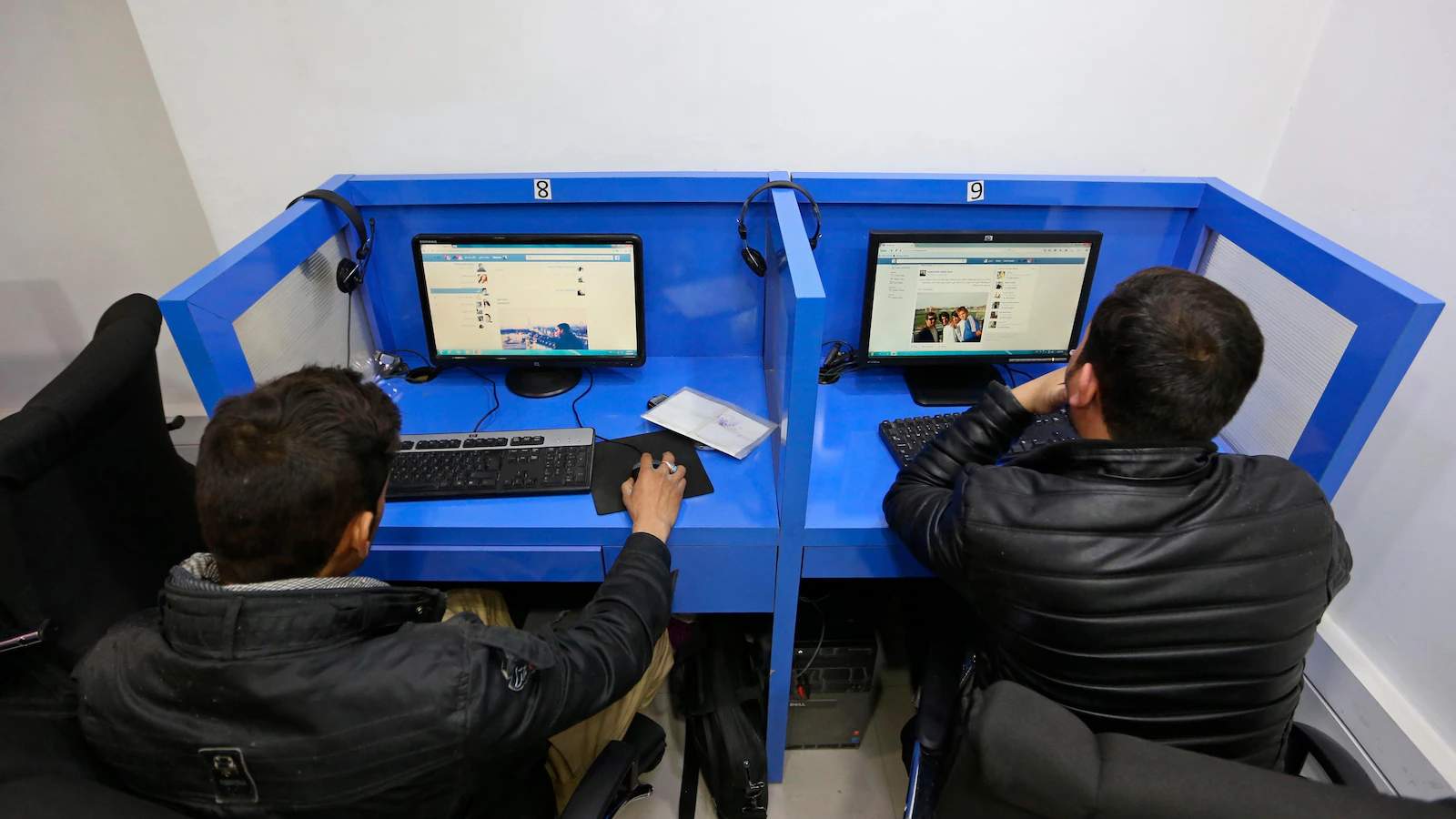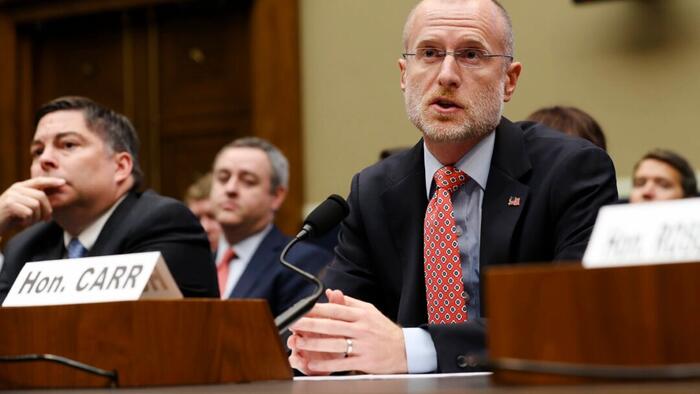
ATLANTA – A federal vaccine advisory panel unanimously voted Friday on a more restrictive approach to coronavirus vaccines by recommending that everyone consult a clinician before getting a shot. The shift creates a complication for Americans who for years were able to get a free shot without having to justify it.
The Advisory Committee on Immunization Practices to the Centers for Disease Control and Prevention eliminated its past recommendations for all Americans ages 6 months and older to receive annual coronavirus shots. Instead, it recommends the vaccines under “shared clinical decision-making,” meaning people should first consult a medical professional. The full practical implications are unclear. A proposal to encourage states and localities to explicitly require prescriptions for coronavirus vaccines narrowly failed.
“There’s going to be some confusion and some fallout that has to get sorted, and it could ultimately be that people in some states face some barriers that they didn’t,” said Jennifer Kates, a senior vice president at KFF, a health policy research organization. “In general, everyone will have an extra step that they haven’t had before.”
The Food and Drug Administration in August narrowed approval of updated coronavirus vaccines to those age 65 and older and people with underlying conditions that elevate their risk for severe disease. The ACIP recommendations appear to be more restrictive for seniors by requiring medical consultations and less restrictive for otherwise healthy younger people.
Acting CDC Director Jim O’Neill is not expected to take action on the committee’s recommendations until next week, according to a federal health official who spoke on the condition of anonymity because of ongoing discussions.
Legal experts and health care providers were trying to assess in real time what the changes mean, particularly at the pharmacy counter. The CDC website includes pharmacists in the list of health care providers who can be involved in discussing vaccines with patients. Other vaccines have been recommended under shared-clinical decision-making, including coronavirus vaccines for healthy children under a CDC policy changed in spring. A spokeswoman for CVS, the largest pharmacy chain, said its pharmacists can consult patients about coronavirus vaccines and are waiting to implement the recommendations once the CDC director signs off.
“It is not something that is out of the realm or training for pharmacists, and it’s something they’re comfortable doing,” said Brigid Groves, the vice president of professional affairs at the American Pharmacists Association.
But access for Americans could be complicated because pharmacists would no longer be instructed to give the shot automatically to anyone who wants it.
“It’s just a pure and simple workflow issue,” said Richard Hughes IV, a former vice president of public policy at coronavirus vaccine manufacturer Moderna, who teaches vaccine law at George Washington University Law School.
Joseph Hibbeln, a neuroscientist on the panel, said nearly a third of Americans don’t have ready access to a primary health care provider, with even greater difficulty in rural areas, which would impair their ability to have a risk-benefit discussion with a doctor before getting vaccinated.
Henry Bernstein, a pediatrician who assisted the panel’s coronavirus working group and objected to its recommendations, said the default decision is to “vaccinate all patients that consent” when the CDC makes a routine age or risk-based recommendation.
But recommendations with shared-clinical decision-making “are perceived differently,” he said, with “no default, and vaccination is often interpreted as optional.”
Retsef Levi, the ACIP panelist who leads the coronavirus vaccine work group and has previously called for a halt to mRNA coronavirus vaccines, said the group wanted to address communicating risks and uncertainties of the shots to patients more consistently. Some panelists agreed that patients should be better educated about the risks and benefits. Levi added that requiring consultations with health care providers continues to ensure the vaccine will be offered for free.
Levi gave a presentation where he cast doubt on the CDC, arguing he does not believe the agency appropriately acknowledges safety concerns.
“Do we have a culture of safety?” asked Levi, a professor of operations management at the Massachusetts Institute of Technology. “What would it take for us to acknowledge that there is a problem?”
Levi’s presentation prompted an unusual counter-presentation from a group of scientists who served on the committee’s coronavirus vaccine work group that argued the vaccines have been carefully evaluated at every stage and are important to increasing population immunity.
“Simple, stable recommendations can increase vaccine coverage,” Bernstein said. “COVID-19 vaccines are highly safe and effective.”
Representatives of medical associations and other health officials have blasted the advisers, all appointed by Health and Human Services Secretary Robert F. Kennedy Jr., as peddling misleading and false claims.
The panel also voted to push the CDC to consider adding language for patients and medical providers that would describe in more detail the risks and uncertainties of the vaccine, some of which medical experts say are misleading, including about inflammation of the heart muscle and vaccination during pregnancy. Medical associations and state health officials that continue to broadly recommend coronavirus vaccines say they have been well studied and are safe and effective – a phrase that Levi says public health officials should veer away from.
“The number of false statements made at this ACIP meeting are practically too numerous to keep track of,” said Peter Marks, who served as the nation’s top vaccine regulator before he was ousted in March. “There were so many that they contaminated the several true statements made; terribly confusing reality.”
Some Americans have already faced challenges getting coronavirus vaccines that became available last month because many states required CDC approval to allow pharmacies to administer vaccines. Most of those states have since relaxed their restrictions, but some doctors and pharmacies have continued to refrain from offering the shot until the CDC weighs in.
Free access to coronavirus vaccines is likely to continue for most Americans: AHIP, a major health insurance trade group, issued a statement Tuesday committing to covering the cost through the end of 2026. And vaccines recommended under shared-clinical decision-making must be covered by insurers, although there has been confusion about those rules for previous vaccines. HHS said public health insurances programs, like Medicare and Medicaid, will continue to pay for the shots.
The high-stakes decision affecting access to coronavirus vaccines capped off a lengthy two-day ACIP meeting.
On Thursday, the vaccine advisers said they planned to review vaccines given during pregnancy and childhood, escalating the scrutiny of immunization policy under Kennedy’s leadership.
The advisers voted Thursday to stop recommending a combined measles, mumps, rubella and chicken pox vaccine to toddlers. But they also voted to approve a contradictory plan to still provide the shot through a federal program and reversed themselves the next morning.
They also voted Friday to indefinitely delay a plan to eliminate a 34-year recommendation for hepatitis B vaccination at birth. Medical groups said there was no reason to revisit a vaccine policy credited with drastically reducing infections from the liver-damaging virus and nearly eliminating maternal-to-fetal transmission. Several panelists questioned routine immunization of infants when most babies are not at risk of contracting the virus.
Before the vote on coronavirus shots, the panelists heard information from the CDC detailing extensive safety and effectiveness data. The vaccine advisers brought up allegations of contaminated vaccines and a recently retracted study indicating the vaccine induced autism-like behaviors in rats.
Kirk Milhoan – a pediatric cardiologist who has previously said the use of mRNA vaccines should stop for now – said he was concerned about the pharmacologic rigor of the product. FDA senior adviser Tracy Beth Hoeg said the agency takes the issue and public safety seriously.
Martin Kulldorff, the committee’s chair, questioned data related to vaccination in pregnant women and whether the shot led to birth defects. Pfizer has said the vaccine maker does not believe the events were related to the vaccine, and the rates seen in the study match what would be expected in the general population. A company official told him that the congenital abnormalities occur during the first trimester, and the women in the study received the vaccine later in pregnancy.
The committee’s two-day gathering was chaotic, with members at times confused about what they were voting on and CDC staff having to explain basic processes for analyzing data and recommending vaccines.
“Health is not being served and trust is out the window,” said Anne Schuchat, a former top CDC official who served at the agency through seven administrations and nine CDC directors.
Major medical associations and several states run by Democratic governors have issued their own recommendations for Americans to receive coronavirus vaccines if they are at elevated risk or want protection, anticipating a more restrictive approach under Kennedy.
Health officials under President Donald Trump have argued there is insufficient data to justify sweeping recommendations for all Americans to get the shots and that the United States was an outlier. Federal health officials had already been weighing whether to limit recommendations for a coronavirus shot to older adults and high-risk individuals. But some public health experts have said they believe the rhetoric from Kennedy and his allies undermines public confidence in a shot that studies have deemed safe and effective.
Last year’s updated coronavirus vaccine provided additional protection against COVID medical visits across all age groups, according to a CDC presentation to the advisers posted online ahead of the meeting. It also shows rates of coronavirus-associated hospitalization are highest among the youngest and oldest age groups.
Roughly 13% of children were up-to-date with their coronavirus vaccination as of April 2025, according to one of the presentations. Vaccination rates improved for older adults during the 2024-2025 season; more than 44% of those 65 and older were up-to-date with their shots.
Cody Meissner, a panel member, said he was worried the CDC’s credibility was at stake if the agency makes a recommendation that Americans are not going to follow. “At what point does the low uptake of a vaccine influence CDC recommendations?” he asked, adding, “It’s almost like prohibition. No one was supposed to drink alcohol, but people did.”
Kennedy has a lengthy history of disparaging vaccines and falsely called the coronavirus vaccine the “deadliest vaccine ever made.”
Kennedy has already directed changes to the coronavirus shots, urging the CDC in May to soften its recommendations for otherwise healthy children and pregnant women to receive coronavirus vaccines.
In June, Kennedy purged the entire membership and later replaced the panel with handpicked advisers, including five announced Monday.
The newly reconstituted committee has come under intense scrutiny from lawmakers on Capitol Hill. Earlier this week, Susan Monarez – who was fired as CDC chief last month – told senators that Kennedy directed her to commit to approving every ACIP recommendation. She also said Kennedy told her she “needed to be on board” with coming changes to the childhood immunization schedule.
Trump health officials did not deliver a presentation they had planned to link coronavirus vaccines to the deaths of 25 children as they consider limiting which Americans should get the shots, which The Washington Post previously reported.
The move had alarmed career scientists who said that coronavirus vaccines have been extensively studied, including in children, and that the dangers of the virus itself are being underplayed.



